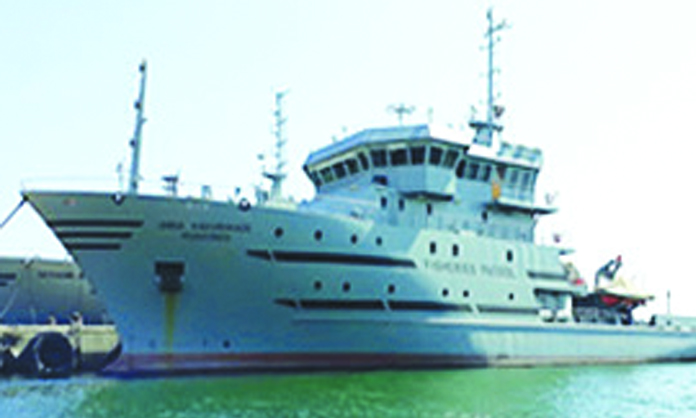A parliamentary standing committee has proposed the creation of a naval base at the Kunene River.
The National Council standing committee on agriculture, environment and natural resources says this is to combat illegal, unreported and unregulated (IUU) fishing.
In a report released by the committee and signed by chairperson Melania Ndjago, the members say they have engaged with stakeholders to understand issues in the area.
This proposal follows concerns raised in the report issued last month by the committee on its oversight visit to investigate the status of Namibia’s fishing resources.
The report highlights Namibia’s vulnerabilities to IUU fishing activities and systemic challenges within the Ministry of Fisheries and Marine Resources.
The oversight visit included inspections at the ministry’s offices at Walvis Bay and Lüderitz, as well as harbours and patrol vessels used for monitoring Namibian waters.
The establishment of a naval base at the Kunene River is viewed as essential for improving response times and surveillance along Namibia’s northern waters.
Currently, patrol resources are stationed at Walvis Bay, which is too distant to act swiftly in emergencies.
“Illegal fishing vessels can operate undetected for extended periods because our patrols are limited by distance and outdated equipment,” the report says.
It says a Kunene base, equipped with helicopters, drones and modern patrol vessels, could reduce response times from up to a day to as little as two hours.
The report highlights the shortage of personnel within the ministry.
It said the ministry has only 174 fisheries inspectors and navigation officers employed nationwide. They also discovered that fisheries ministry’s equipment is strained.
It says only one of two patrol aircraft is operational and that two patrol vessels, though well-maintained, are constrained by high operational costs.
Additionally, all patrol vehicles at Walvis Bay were found to be non-operational.
Illegal activities including mussel harvesting and large-scale fish poaching remain rampant along the coast. These gaps have allowed offenders to exploit Namibia’s resources freely, ministry officials have admitted.
Namibia’s fishing industry, the country’s second-largest foreign currency earner after mining, contributes 4,6% to its gross domestic product and provides employment for approximately 16 000 Namibians.
To combat these challenges, the committee recommended increased funding from the Ministry of Finance and Public Enterprises to support surveillance operations.
Investment in helicopters, drones, patrol vehicles and improved internet connectivity were deemed critical for effective monitoring.
“Without a unified approach, we will continue to lose valuable resources to IUU fishing and-mismanagement,” the committee warns.
Stay informed with The Namibian – your source for credible journalism. Get in-depth reporting and opinions for
only N$85 a month. Invest in journalism, invest in democracy –
Subscribe Now!






